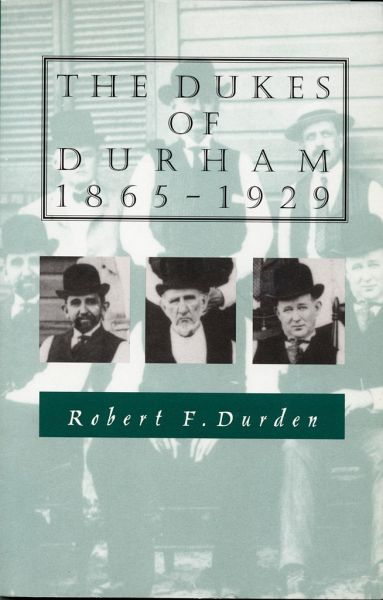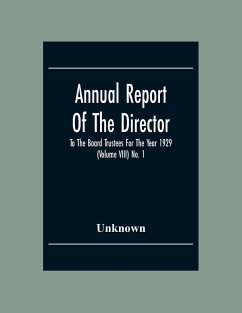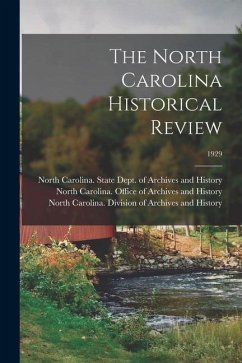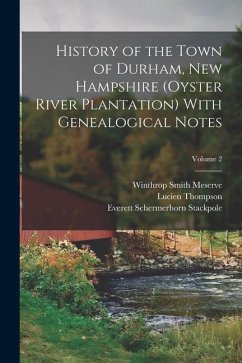
The Dukes of Durham, 1865-1929

PAYBACK Punkte
17 °P sammeln!
This is the history of Washington Duke and two of his sons, Benjamin Newton Duke and James Buchanan Duke. Although numerous other members of the family play their parts in the story it focuses primarily on the three men who were at the center of the economic and philanthropic activities which made the Dukes of Durham one of America's famous families. The Dukes operated closely and constantly as a family, and only in that context is their full story told. In the years after the Civil War, Washington Duke proved to be an unusually able industrialist and a conscientious, Methodist philanthropist....
This is the history of Washington Duke and two of his sons, Benjamin Newton Duke and James Buchanan Duke. Although numerous other members of the family play their parts in the story it focuses primarily on the three men who were at the center of the economic and philanthropic activities which made the Dukes of Durham one of America's famous families. The Dukes operated closely and constantly as a family, and only in that context is their full story told. In the years after the Civil War, Washington Duke proved to be an unusually able industrialist and a conscientious, Methodist philanthropist. He was, in fact, a major Southern pioneer in both industry and philanthropy. His two sons by a second marriage were remarkably devoted to each other as well as to their father. Both sons also reflected traits of thier father. While Benjamin N. Duke and James B. Duke had life-long involvement with the business world-first in tobacco, then textiles, and finally electric power-as well as with philanthropy, they actually developed complementary specializations. Benjamin N. Duke, the older of the two, served as the family's primary agent for philanthropy from his early manhood in the late 1800's until he gradually became semi-invalid after 1915. James B. Duke, on the other hand, early displayed a marked talent, even a genius, for business. Toward the end of his life, with the establishment of The Duke Endowment late in 1924, he emerged as one of the nation's major philanthropists, ranking alongside Andrew Carnegie and John D. Rockefeller. A central theme of this book is, however, that the Endowment, despite its magnitude and far-reaching scope, was essentially the institutionalization and culmination of a pattern of family philanthropy that emerged in the 1890's and for which the older brother, Benjamin N. Duke, had always been the primary agent. Thus, the story of James B. Duke, who was and has remained much the more well-known of the two brothers, cannot properly be told out of the family context from which he emerged and in which occurred most of the important phases of his life. Washington Duke, as a small, land-owning yeoman farmer, was typical of the great majority class not only in antebellum North Carolina but in the South as a whole. Only after the war, when he and his sons emerged as large-scale industrialists and philanthropists, did the Dukes become atypical. Their story is, then, both agricultural and industrial, both Southern and national. Born North Carolinians, they moved onto a national, even global, stage. Yet all the while they kept deep roots, as well as vast investments of capital, in the Old North State, and they poured many millions into philanthropy, largely in the two Carolinas. Based largely on manuscript sources, many of them hitherto unused, this is the first study of the Duke family. The "New South," as recent historians have told us, may not have been so new-but it was certainly different in important ways, and the Dukes loomed large among those who helped to make it so.












![The Massachusetts Collegian [microform]; Sep 26 1928 - Jun 12 1929 Cover The Massachusetts Collegian [microform]; Sep 26 1928 - Jun 12 1929](https://bilder.buecher.de/produkte/65/65574/65574205n.jpg)
